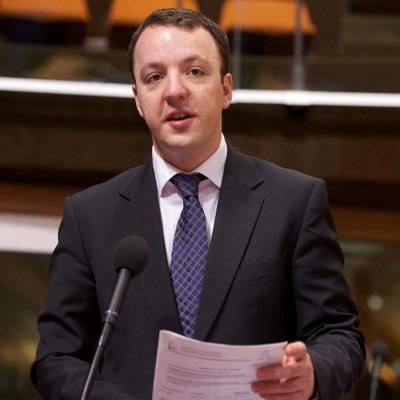“Bulgaria is the weakest member state of the EU and we (North Macedonia) have problems not with the strongest, but the weakest state in the EU. Bulgaria needs the EU much more than the EU needs Bulgaria. No one can convince me that the biggest EU capitals cannot put pressure on Bulgaria. If they thought Macedonia deserved negotiations, they would solve the problem in one day, in one afternoon. They will send a tough diplomat, he will meet in Sofia with whom he has to meet, he doesn’t even need to spend the night there, and the work will be done”, wrote the deputy chairman of VMRO-DPMNE Aleksandar Nikoloski in his comment in the latest edition of the magazine “Focus”.
His comment, quoted by BTA, is titled: “The less crime and corruption in power, the less extortion from Bulgaria”, and his thesis is that “a country weakened by crime and corruption is an easy target for aggressive neighbors, in the case of one country – Bulgaria”.
“On the other hand, because of crime and corruption, the EU does not put pressure on Bulgaria to give up its negative policy towards Macedonia, as a condition for starting negotiations. This has proven to be true in the last two years,” writes Nikoloski.
He quoted the words of “a European diplomat”, according to whom “constitutional changes have nothing to do with negotiations with the EU, because North Macedonia had 15 years to carry out reforms”, adding that “European diplomats no longer hide behind clichés” when they talk about the country’s problems.
The lack of reforms and problems in the judicial system and corruption in North Macedonia were discussed in recent months by the ambassador of the Netherlands, Dirk Jan Kop, who stated that a project financing the Judicial Council will be stopped, due to a lack of results. By the ambassador of Austria, Georg Voutsas, who in an open letter to the country’s media outlined the problems faced by an Austrian firm that won an arbitration case but could not receive the award. As well as by the US ambassador Angela Aggeler who sees the main challenges facing the country currently as corruption and crime.
With a VMRO-DPMNE government and a strong fight against organized crime, in six to nine months North Macedonia can be “repaired” and its image in the EU can become positive, Nikoloski claims in his comment.
The leadership of VMRO-DPMNE insists on early elections and says that the deputies of the opposition party will not vote on the changes in the country’s constitution, which are a condition for opening the negotiating chapters after the second Intergovernmental Conference with the EU. After the adoption of the negotiating framework a year ago, the opposition party began a series of protests, arguing that the inclusion of Bulgarians in the constitution of North Macedonia meant the Bulgarianization of the country, and its MPs signed notarized declarations that they would not vote for changes to the basic law.
Changes to the constitution must be made before the country’s screening process is completed and according to the negotiating framework, if this condition is met, the second intergovernmental conference must be held automatically afterwards.

